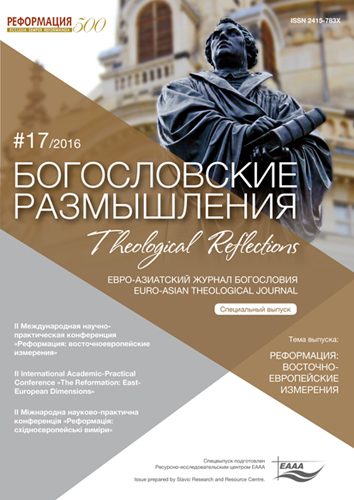“Sparks of Truth”: I. S. Prokhanov and the Bohemian Reformation
DOI:
https://doi.org/10.29357/issn.2521-179X.2016.17.194Keywords:
Hussite, Russian evangelical movement, Ordination, Unity of Brethren, Bohemia, Ivan Stepanovich ProkhanovAbstract
Among the admirers of Hus and the Hussites abroad was the president of the All-Russian Evangelical Christian Union, Ivan Stepanovich Prokhanov (1869-1935), who visited Czechoslovakia in 1924. During his six-week stay, he studied the Hussite movement with some care and on 1 April was ordained by an association of Czechoslovak Baptists who had named themselves after Petr Chelčický (?1390-?1443), a theologian of the Hussite period, who asserted the separation of church and state and practiced baptism on profession of faith. Since Prokhanov had many international connections, what factors may have motivated him to seek ordination from this group in particular? This paper presents a basic sketch of the contributions of Jan Hus and Petr Chelčický and describes how the Bohemian Reformation became a central part both of the historical narrative of the nation of Czechoslovakia and of the identity of Baptists. It concludes with an examination of Prokhanov’s own reflections on the meaning of these historical figures and events for the Russian evangelical movement.
References
- Without a list of references
Downloads
How to Cite
Issue
Section
License
Copyright (c) 2020 Mary RABER

This work is licensed under a Creative Commons Attribution-NonCommercial 4.0 International License.
All articles published in the Journal are distributed under a Creative Commons Attribution-NonCommercial 4.0 International License
By submitting an article for publication in Theological Reflections: Eastern European Journal of Theology the author grants the editors the right to publish the article and distribute it in electronic and print form.
The author reserves all copyrights and the right to use the materials of the article in whole or in part for educational purposes, to write his own dissertations, to prepare abstracts, conference reports, oral presentations, etc., as well as post electronic copies of articles (including the final electronic version downloaded from the journal’s official website) on non-commercial web-resources without the consent of the editorial board and founders.



